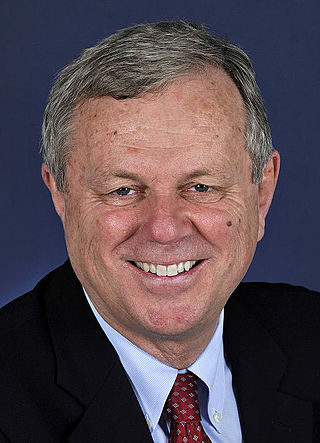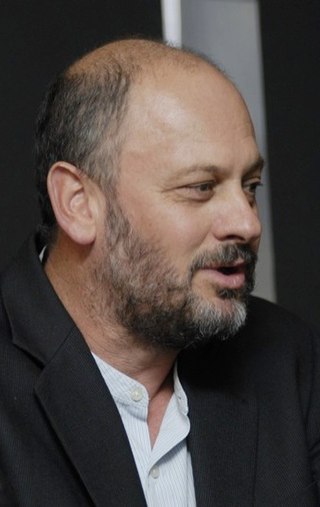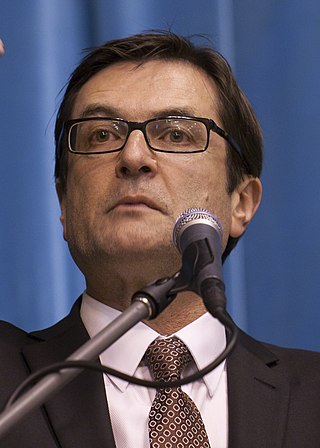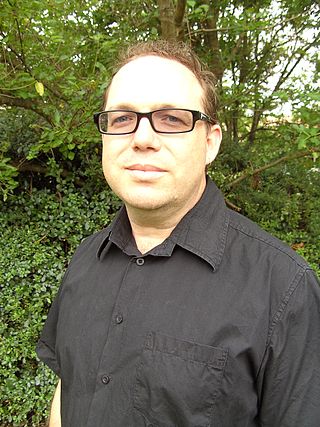
The Pacific Islands Forum (PIF) is an inter-governmental organization that aims to enhance cooperation among countries and territories of Oceania, including formation of a trade bloc and regional peacekeeping operations. It was founded in 1971 as the South Pacific Forum (SPF), and changed its name in 1999 to "Pacific Islands Forum", so as to be more inclusive of the Forum's Oceania-spanning membership of both north and south Pacific island countries, including Australia. It is a United Nations General Assembly observer.

Michael David Rann,, is an Australian former politician who was the 44th premier of South Australia from 2002 to 2011. He was later Australian High Commissioner to the United Kingdom from 2013 to 2014, and Australian ambassador to Italy, Albania, Libya and San Marino from 2014 to 2016.

The City of Merri-bek is a local government area in metropolitan Melbourne, Australia. It comprises the inner northern suburbs between 4 and 11 kilometres from the Melbourne CBD. The Merri-bek local government area covers 51 km2 (20 sq mi), and in June 2018, it had a population of 181,725.

The Australian Conservation Foundation (ACF) is Australia's national environmental organisation, launched in 1965 in response to a proposal by the World Wide Fund for Nature for a more co-ordinated approach to sustainability.

Johnstone William "John" Thwaites is an Australian former politician, and served as Deputy Premier of the state of Victoria from 1999 to 2007.

The state election for the 51st Parliament of South Australia was held in the Australian state of South Australia on 18 March 2006 to elect all members of the South Australian House of Assembly and 11 members of the South Australian Legislative Council. The election was conducted by the independent State Electoral Office.

Timothy Fridtjof Flannery is an Australian mammalogist, palaeontologist, environmentalist, conservationist, explorer, author, science communicator, activist and public scientist. He was awarded Australian of the Year in 2007 for his work and advocacy on environmental issues. He is the Geneva Graduate Institute’s Fondation Segré Distinguished Visiting Professor.

The G20 or Group of 20 is an intergovernmental forum comprising 19 sovereign countries, the European Union (EU), and the African Union (AU). It works to address major issues related to the global economy, such as international financial stability, climate change mitigation and sustainable development.

Climate Group is a non-profit organisation that works with businesses and government leaders aiming to address climate change. The Group has programmes focusing on renewable energy and reducing greenhouse gas emissions.

Gregory Ivan Combet is the chairman of Australia’s sovereign wealth fund, the Future Fund. Prior to this he served as chair of the Australian Government Net Zero Economy Agency, overseeing the economic transformation from fossil fuels to renewable energy and net zero emissions.

State elections were held in South Australia on 9 February 2002. All 47 seats in the South Australian House of Assembly were up for election, along with half of the 22 seats in the South Australian Legislative Council. The incumbent Liberal Party of Australia led by Premier of South Australia Rob Kerin was defeated by the Australian Labor Party led by Leader of the Opposition Mike Rann. The Labor Party won 23 out of 47 seats, and then secured the one more seat it needed for a majority by gaining the support of independent Peter Lewis.
Michael O'Brien was the Labor member for Napier in the South Australian House of Assembly from 2002 to 2014. He was Minister for Finance, Minister for Police, Minister for Emergency Services, Minister for Correctional Services and Minister for Road Safety.
The Australia Institute is a public policy think tank based in Canberra, Australia. Since its launch in 1994, it has carried out research on a broad range of economic, social, and environmental issues.
Prime Ministerial Task Group on Emissions Trading was a Task Group set up on 10 December 2006 by Australian Prime Minister John Howard to develop an Australian Carbon Trading Scheme. The terms of reference of the task group was:

The Carbon Pollution Reduction Scheme was a cap-and-trade emissions trading scheme for anthropogenic greenhouse gases proposed by the Rudd government, as part of its climate change policy, which had been due to commence in Australia in 2010. It marked a major change in the energy policy of Australia. The policy began to be formulated in April 2007, when the federal Labor Party was in Opposition and the six Labor-controlled states commissioned an independent review on energy policy, the Garnaut Climate Change Review, which published a number of reports. After Labor won the 2007 federal election and formed government, it published a Green Paper on climate change for discussion and comment. The Federal Treasury then modelled some of the financial and economic impacts of the proposed CPRS scheme.

Climate change has been a critical issue in Australia since the beginning of the 21st century. Australia is becoming hotter and more prone to extreme heat, bushfires, droughts, floods, and longer fire seasons because of climate change. Climate issues include wildfires, heatwaves, cyclones, rising sea levels, and erosion.

Steve Hatfield Dodds is an Australian philosophical economist, with notable work in the social cost of economic decision-making and particularly sustainable development and the economic impact of climate change.

Tasneem Essop, is currently (2009) the executive director of Climate Action Network, the largest global network of over 1,300 civil society organisations, in over 120 countries, fighting the climate crisis. Essop served as a former Provincial Minister of Environment, Planning and Economic Development in the Western Cape and was responsible for the Department of Environmental Affairs and Development Planning (DEADP) and the Department of Economic Development, as well as the Western Cape Investment and Trade Promotion Agency, Wesgro and the Western Cape Nature Conservation Board, CapeNature.

Greenhouse gas emissions by Australia totalled 533 million tonnes CO2-equivalent based on greenhouse gas national inventory report data for 2019; representing per capita CO2e emissions of 21 tons, three times the global average. Coal was responsible for 30% of emissions. The national Greenhouse Gas Inventory estimates for the year to March 2021 were 494.2 million tonnes, which is 27.8 million tonnes, or 5.3%, lower than the previous year. It is 20.8% lower than in 2005. According to the government, the result reflects the decrease in transport emissions due to COVID-19 pandemic restrictions, reduced fugitive emissions, and reductions in emissions from electricity; however, there were increased greenhouse gas emissions from the land and agriculture sectors.
The Premier's Climate Change Council is a South Australian state government body within the Department for Environment and Water. It was established in 2008 and As of 2024 is chaired by Martin Haese. The Council provides independent advice to the Minister responsible for climate change about matters related to the reduction of greenhouse gas emissions and climate change adaptation.













